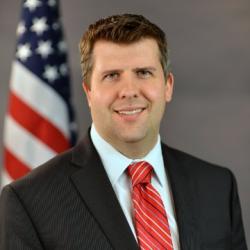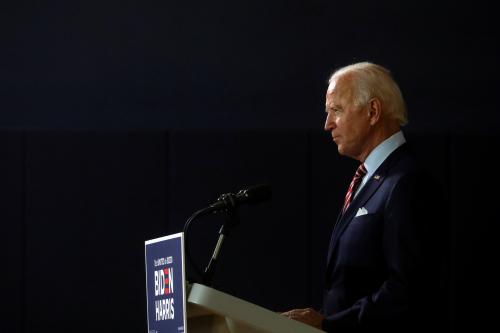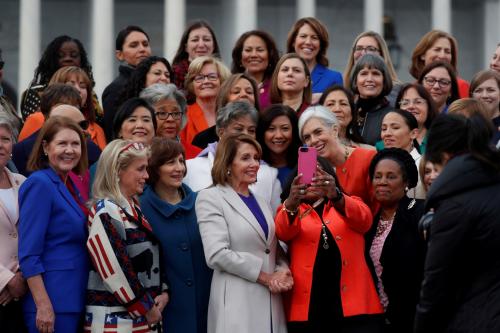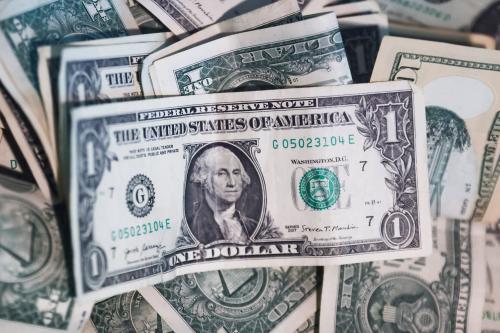This report is part of the Series on Financial Markets and Regulation and was produced by the Brookings Center on Regulation and Markets.
It’s past time for Congress to limit trading and outside business activities for its members and staff. Our Democracy is undermined when the public questions whether government officials are personally profiting off of their government positions. Unfortunately, we have seen members of Congress trading extensively in stocks while also holding hearings, writing laws, and funding regulators that directly impact those stocks’ prices. And we have seen outside business interests of Democrats and Republicans benefit from federal programs and activities. Both financial trading and outside business activities present clear conflicts of interest that undermine trust in those officials and in government overall. Both should be limited far more than they are today.
Nearly a decade ago, “60 Minutes” exposed how several members of Congress had traded stocks after learning secret information about the severity of the 2008-2009 financial crisis. Amidst a massive public outcry, President Obama asked Congress to send him legislation that would ban “insider trading” by members of Congress and limit “any elected official from owning stocks in industries they impact.”
Congress responded by passing the Stop Trading on Congressional Knowledge (STOCK) Act just a few months later.
That law was necessary because of a then-longstanding loophole in our insider trading laws. A person can only be liable for insider trading if the person has a duty of trust and confidence to the ultimate source of the information. Prior to passage of the STOCK Act, however, it was not clear whether members of Congress and their staffs had such a legal duty. The STOCK Act changed the law by declaring that members of Congress do, in fact, have such a duty to “Congress, the United States Government, and the citizens of the United States.”
As a result, it’s now clear that members of Congress and their staffs can’t trade based on “material, non-public information” “derived from” their positions or “gained” as part of their jobs. However, the STOCK Act still leaves many concerns with congressional trading unaddressed.
As an initial matter, for there to be a violation, the information must be both material and non-public. It is often unclear to members of Congress and their staffs whether the information they receive is public or not. Members of Congress and their staffs receive public and non-public information across a broad spectrum of issues every day. They receive information and requests for help from families and companies. They receive information from trade associations on market events and important trends. They receive information from other parts of the government on recent events and upcoming actions. And that may all happen before ten in the morning.
There is no way to consistently parse through all of this information and reliably separate “material, non-public information” that was “derived from” or “gained” as part of the job from what was “public.” Nevertheless, some members of Congress try.
In March, then-Senate Intelligence Committee Chairman Richard Burr (R-NC) came under investigation after it was revealed that he traded stocks after being confidentially briefed that the coronavirus crisis was going to get much worse. Senator Burr responded to the allegations by arguing that he traded not because of the information he received as part of his job, but instead based “solely on public news reports.”
Senator Burr’s response is essentially that he didn’t violate the law because he was watching obscure television reports out of Asia regarding the rising concerns over the coronavirus. And then, rather than publicly sound the alarm, he decided to trade stocks for his personal account while downplaying the risks in public. Neither the potential STOCK Act violations nor the defense are likely to instill confidence.
There are also several questions about the STOCK Act that remain unanswered. Certainly, the ongoing criminal and civil investigations against Senator Burr seem likely to hinge upon what information he learned from his confidential briefings versus what was publicly available. But what if the information he received might be available “somewhere,” but isn’t widely distributed or known? Could confidential briefings, even if reiterating some already nominally public information, be the reason he traded? If Dr. Fauci privately told you that he was encouraged by a coronavirus vaccine from one drug manufacturer, you would likely place far more weight on the remark than if you’d read it in your neighbor’s social media post. Context matters.
What if the “material, non-public information” is about something a member of Congress is actually working on? For example, what if a Senator bought stocks in companies that would be expected to benefit from legislation that she was working on? For example, it was reported that Senator Perdue (R-GA) worked on legislation that was intended to directly benefit regional banks at the same time he was trading the stock of a regional bank. In fact, Senator Purdue reportedly engaged in 2,500 trades over a few years, including stocks whose values he may have impacted through legislation and hearings. With that volume of activity, it’s fair to wonder, is the Senator focused on what’s best for the country, or what’s best for his extensive stock portfolio?
Again, even if these actions don’t violate the STOCK Act, should they be permitted? I believe the answer is no.
While these examples are all about stocks, there are plenty of other ways for members of Congress and their staffs to profit from the information they routinely receive. That information can be used in real estate transactions, business deals, but also in trading bonds, foreign currencies, commodities, and even cryptocurrencies. These aren’t all clearly identified on trading reports, nor are they all subject to the STOCK Act prohibitions.
Even if these actions don’t violate the STOCK Act, should they be permitted?
Trading in any financial instrument by members of Congress creates risks that they may be exploiting their government positions for personal gain. As recent press reports have made painfully clear, Congress must take action to better guard against those risks.
Many members of Congress also profit from outside business interests. While congressional ethics rules may limit direct compensation for being an officer or director in a public company, they generally don’t prohibit members from owning or having significant roles in ongoing businesses, even businesses that may benefit directly from the government. The Trump Hotel has been a lightning rod for criticism and claims of unjust enrichment, but what if a member of Congress benefits directly from a federal government program, such as the Paycheck Protection Program? Once the names of PPP recipients were released, we learned that several members of Congress had businesses that benefited from the program. Should that be a concern?
What if a member of Congress or a staffer owns a business that happens to engage in government contracts? Or what if others in the private sector seek to do business with a member-owned company because of its connection to the member of Congress or staffer, such as to build a relationship or curry favor? While direct compensation to a member for his service as an officer may be limited, what about his benefits as an owner? What can mitigate the innumerable risks of corruption arising members’ affiliations with businesses?
Unfortunately, Senate and House ethics rules (and their enforcement) seem to be providing insufficient safeguards for the public. It would be extremely difficult for a member of Congress or staffer to own or have a significant financial relationship with any for-profit business without these significant risks for conflicts of interest, and yet they seem to persist.
The conflicts of interest created by members of Congress and staffs engaging in personal trading and owning or having significant financial relationships with outside businesses are material and unavoidable.
Trust in government begins with trust in public officials. To restore confidence that public servants are working on our behalves, and not focused on their own personal finances, we must reduce these conflicts of interest as much as we can. Congress should restore our trust in them by enacting these five reforms:
- Prohibit buying or selling any property or financial instruments while in possession of material, non-public information related to that property or instrument, including any such information that may be derived from the person’s position or gained during the performance of the person’s responsibilities;
- Prohibit any purchases and sales of any instruments whose value might reasonably be expected to be impacted by any hearings, briefings, legislation or other action by the person;
- Direct that all purchases and sales be in “broad-based” instruments;
- Require “pre-clearance” with the appropriate ethics office (similar to current practices in the financial services industry); and
- Prohibit active ownership or other significant financial relationships with any for-profit business.
Members of Congress who engage in real estate transactions, or financial markets trading, or who own or have significant financial relationships with for-profit businesses have incalculable opportunities to profit from their positions.
By adopting simple reforms for trading and outside business activities, Congress could pick up on the failures of the STOCK Act and existing congressional rules, reduce conflicts of interest, and help restore trust in government. Let’s all hope they do it.
Tyler Gellasch served as Counsel for U.S. Senator Carl Levin (D-MI), where he helped draft the Stop Trading on Congressional Knowledge Act. Gellasch currently serves as Executive Director of the Healthy Markets Association and is a Fellow at the Global Financial Markets Center at Duke Law. Other than the aforementioned, the author did not receive financial support from any firm or person for this article or from any firm or person with a financial or political interest in this article. Other than the aforementioned, he is currently not an officer, director, or board member of any organization with an interest in this article. The opinions expressed herein are the author’s alone.
The Brookings Institution is committed to quality, independence, and impact.
We are supported by a diverse array of funders. In line with our values and policies, each Brookings publication represents the sole views of its author(s).







